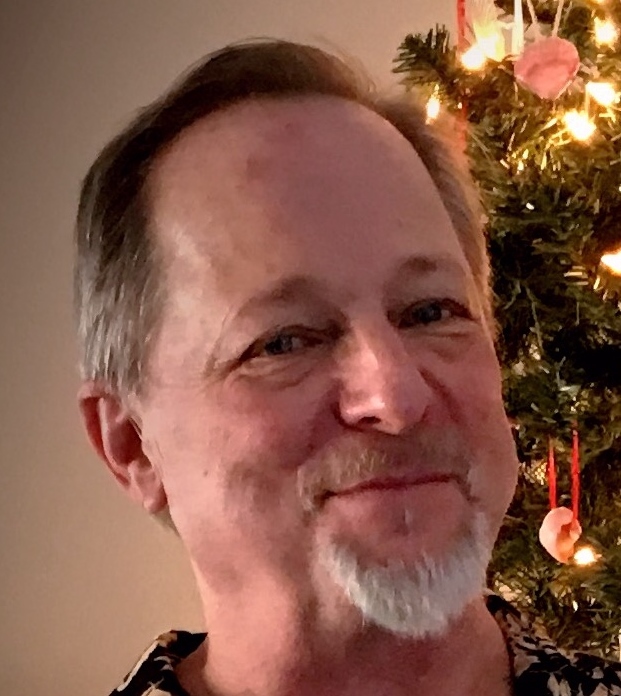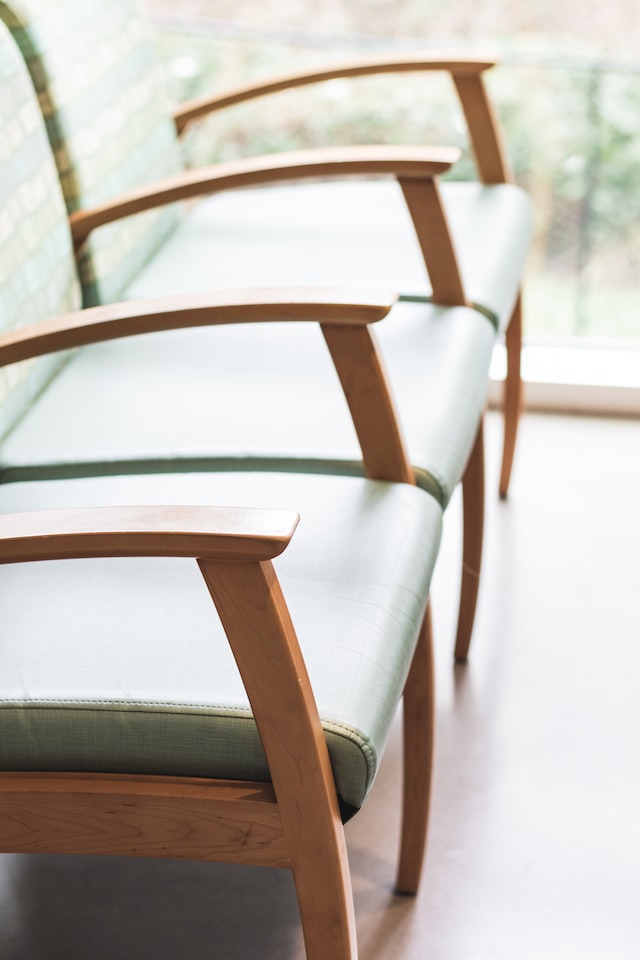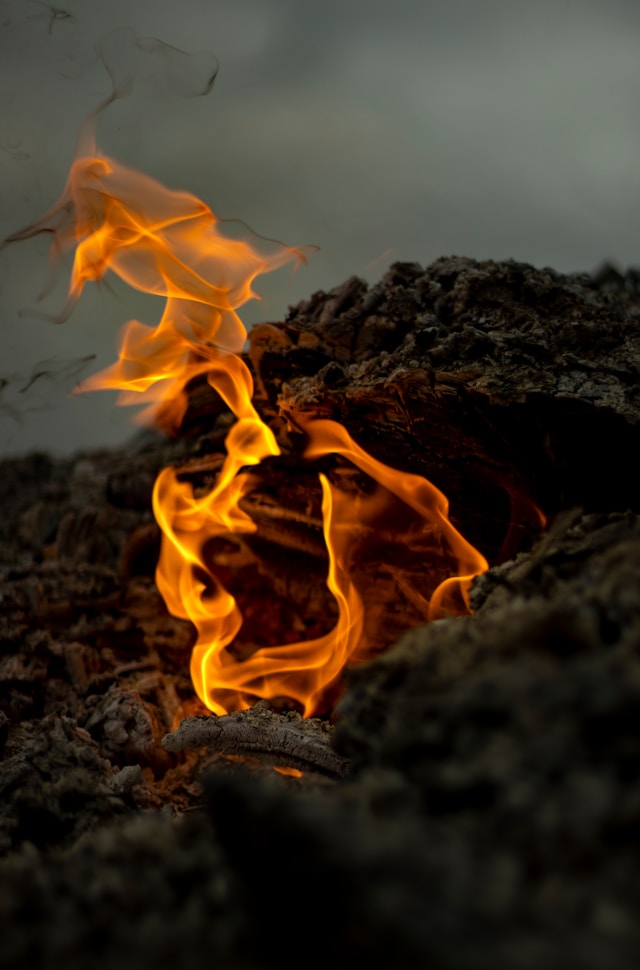The Waiting Room
But it’s the other door that opens, the peculiar rasp of its hinges like a large cat yawning wide, bored and deadly at once. Surgical Intensive Care. A nurse leans out—I watch Nick and Tony, their eyes bouncing toward her, away, toward her, away, a ping-pong match of hope and fear.
“Mr. Kanatopolis?”
Nick Kanatopolis is a plump little man, the shape of an eggplant. His knees creak as he stands. He takes a step before abruptly swiveling back, snagging a shapeless cloth hat from its perch on his chair’s armrest, twisting it in his hands. In the two days since we’ve become best friends, I’ve never seen him without it.
Nick turns back to the waiting nurse, then pauses, staring at me. “This time of night…” His smile twitches on and off like a short-circuiting light bulb, eyes unable to hide his anguish. “It’s never good news, is it? My mother…” But he can’t finish.
“I’ll be here, Nick. We’ll go for a cup of coffee.”
Just words, but enough that he can nod, walk toward the door, disappearing into a room that has replaced his world, a room where the ones we love ponder in mysterious ways whether life is so very important after all.
“His mother.” Tony sighs, shakes his head, but says no more. Here in the waiting room, questions are considered impolite. Nor are they needed. In the dense atmosphere compacted between life and death, in the lonely hours of waiting and praying, each moan takes on a history, each word speaks from the depths of a threadbare heart, each tear washed clean of arrogance and pretension. Nick’s mother has cancer, most of her stomach was removed. Nick prays for a miracle.
As do we all.
On a couch opposite my chair, Tony’s long body corkscrews this way and that, an unremitting search for a comfort his mind won’t allow him. Second place is what he hides in a pocket. I catch his eye. “Tony… it’s ok. No one’s judging you.”
A small bottle appears in his hand, the cap already off. He drinks as though he would drown, the scent of liquor a subtle overlay to the room’s ground-in odor of Lysol and worry.
Tony and his wife, Emma, came in yesterday evening, though, in truth, hours mean little here. In the waiting room, time takes on a life of its own, an ebb and flow more vital than sun and moon. At ten, the lights dim. At six, they brighten again. Sometime between one and the other, Tony told his wife to go home. “Rest,” he’d said. A red-headed pixie of a woman, she’d collapsed into Tony’s arms, tears soaking his shirt, muffled wails filling the room.
Yesterday afternoon, their son had been working his after-school job at a furniture store. A passing car had thrown a hubcap, the store’s front window shattering, the boy caught beneath a rain of razor-sharp glass.
“The doctors say they don’t know.” The words sigh out of Tony, his hand brushing against the bottle, his eyes raised to the cross on the wall, Jesus staring down, compassion overcoming agony. “His face, his face…” As if he could ward off injuries already delivered, Tony’s broad hands reach up and out, pleading. “If he just lives. Please… just that. Live.”
I would offer him assurance, but it is not mine to give. Instead, I cross the narrow floor, sit on the couch next to him, lay a hand on his shoulder. “You love him. He knows that.”
This elicits a new flood of tears. Still, Tony’s not the type of man I can wrap my arms around. A single squeeze, then back to my chair.
Tony pulls a handkerchief out of his pocket, blowing loudly. “And your wife?” he manages.
The question is a breach of protocol, but Tony means well. I have given to him, he wants only to give back. “Her name’s Laura, right?”
Nick must have told him, for it isn’t something I talk about. “I pray for her,” I say. “I imagine angels holding her hands.”
“Angels.” Tony nods. “I like that.” He leans into the couch’s worn cushions, legs stretching out, shoes halfway across the small room. His eyes close, his body relaxing. “Angels.” Then he’s asleep, snoring gently.
In the dim, comfortable light, in the peculiar, nervous quiet of early morning, I study the paintings hung on the walls. Opposite the cross, Jesus welcomes the children, while the side walls portray Jesus weeping before the tomb of Lazarus, Jesus calming the storm. My first night, confused and helpless as Laura transformed from expectant mother to bereavement, hemorrhage, coma, all as quick as a fall down the stairs, I spent my hours staring at the paintings. The painter, whoever he was, for the paintings aren’t signed, had a genius for eyes, as though instead of painting these images, he had spent his time looking out of them.
The door into intensive care opens a crack, I hear Nick’s voice, pleading yet defiant. “You’re a doctor. A doctor! What can I do with her at home?” Then Nick trundles out, hat a little more twisted than when he’d entered, eyes wet with tears. I rise, catch his eye, motion towards the hallway.
Two floors below, an all-night cafeteria offers a wide array of surprisingly tasty vending machine treats, including fresh salads and three types of pasta. Nick wants only coffee. His hands encircle the cup I set before him, he shivers, gazing wide-eyed and unseeing into the rising steam. Nick’s only visitor these past few days has been a priest. He’s an only child, never married, his father dead long ago. Just him and his mother, a family of two.
“The doctor said I should take her home, enjoy my last few days with her.” With what seems an intense effort, Nick lifts his eyes. “But… all things are possible with God, right? I’m right, aren’t I?” His tears flow without shame, following familiar channels. “The doctors… they shouldn’t be giving up.”
I lift my cup, blowing into it, letting the pungent aroma wash my eyes. “How old is your mother?”
“Seventy-three.” Nick looks confused, then suspicious. “Why?”
Instead of answering, I tell him all the stories he’s told me in the last forty-eight hours. When his father died, his mother took two jobs. She kept the house they lived in, she started a college fund for him. On Sundays, she volunteered at their church, driving those unable to drive themselves. She organized care packages for the less fortunate, she worked with the elderly, some of them younger than herself. She always had a kind word, never complained, even as the cancer ate her up. Didn’t want him to worry.
“Quite a woman,” I tell Nick. And when he doesn’t respond, “Quite a mom.”
His eyes remain glued to his coffee cup, which has stopped steaming. “I’m not bringing her home. I can’t… I just can’t.”
The truth is, Nick’s afraid to be alone with her. Afraid to sit in a kitchen still redolent of her cooking. Afraid to watch her die, shamed by his helplessness.
I reach over, pat his arm. Then I bus our cups, and we leave.
The lights in the waiting room brighten as we walk in. Six a.m. In our absence, a new party has arrived, two men, two women huddled in a corner. They don’t look up as we enter, and I offer no greeting. In the waiting room, privacy takes on the thinnest of veneers. Still, I can’t help but notice them—a slight, younger woman, red-eyed and wearied beyond her strength, an older woman encircling the younger with an arm, two middle-aged men, beefy and heavy-jowled.
A nurse opens the door, motioning to the newcomers. “Only two allowed in.”
The women rise, the younger weeping, the older supporting her. Together, they walk into a different world, sound reduced to the whining of medical devices, breathing apparatus, the miracle of life bargained down to essentials.
“Alan…” Nick grips my arm. “Do you think I’m a coward? I mean, maybe… maybe I should take her home. Let her die in her own bed. They said there would be people to help me.”
I stare up at the painting of Jesus weeping before the tomb of Lazarus, I hear Laura’s doctor speaking in a voice I refuse to acknowledge. We can’t stop the bleeding, Alan. The transfusions will give us a little more time, but with your wife in a coma, sooner or later a decision will need to be made.
Nick’s voice grabs at me, pleading for an answer. “What do I do?”
“The same as any of us,” I tell him, a little too harshly. “The best you can.” But it’s not what he needs to hear, and it’s hardly the best I can offer. I turn to him, focusing. I pat his hand. “You have friends here, Nick. What’s there at home?”
The plump little man sits up straighter, nodding. “Friends. Yeah, I guess I do.”
With that, I slump in my chair, eyes closing, allowing sleep to wash away all my imperfections.
It isn’t noise that wakes me, but some electric current, a surfeit of emotion. I wake to see a doctor entering from Intensive Care, Tony and his wife, Emma, jerking to their feet. Doctors rarely come into the waiting room, and never without news of some type.
“Mr. and Mrs. Young…” The doctor’s hands are hidden within the pockets of his white lab coat, his face is flat, void, a soul impervious to the sea changes of life and death. “Your boy is making progress. He’ll be moved down to the third floor in a few hours.”
Tony and Emma let out a dual shriek, hugging, jumping up and down, unconcerned that the doctor has already turned away.
“Third floor,” Tony says to me, as though I hadn’t heard. “Third floor!” He breaks away from his wife, vigorously shaking my hand, then claps Nick on the shoulder, grin so wide it crowds his ears. “You guys haven’t met my boy, I want you meet him. Visit. Third floor, not so far. Practically neighbors.” Then he’s back with his wife, the two of them chattering nonstop as they disappear into the hall.
Third floor. The words echo through my mind. Once people leave the waiting room, they never return.
I sit up straighter, glance at the clock, surprised to discover I’ve slept the morning away. My clothes feel grimy, I need a shower.
Next to me, Nick sits motionless, hat in his lap, gazing forlornly up at the cross. The corner where the newcomers once sat is empty—no coats draped over chairs, no books laid open, no sign they’d ever existed. Passing them on the street, bathed in sunlight and noise, I wouldn’t recognize them. And they wouldn’t want me to.
“Back in fifteen,” I tell Nick. He barely nods, eyes unblinking.
In the beginning, I’d dash home for new clothes. But every minute away from the hospital weighted my heart, the risk of bad news upon my return too much to bear. So I began using the staff’s locker room showers. No one seems to mind.
When I reenter the waiting room, Nick has replaced his hat with a string of rosary beads, long use having polished the dark wood to an ebony gleam. A gift from his mother, I remember him telling me.
“She’s dying” His eyes remain fixed on the cross. “The doctor… anyway, there’s nothing to be done.” His words are hushed, the whisper of wings, the lament of a prayer. “I called the priest.”
“I’m sorry, Nick.”
He turns to me, his movement slow and careful as a sleepwalker. “Alan… I’ve been here nearly three days.” His head shakes, once, twice, trying to dislodge the words. “Every four hours, I go in for my visit. But you’ve never… you… is your wife even in there?”
“She’s in there, Nick. She’s…”
The words fade away, I’m overwhelmed by a vision of the last time I saw her. Was it a week ago? A month? Longer? In the vision, I hear the yawl of the intensive care door swinging open, I see the nurse nod in my direction. My knees creak as I follow her into a vast, windowless room, silent but for the click and whir of machines talking to one another.
Laura lies on a narrow hospital bed, second row, far left, blood dripping into her arm, dripping out just as quickly. There is no movement as I approach, no sign of recognition. Her eyes remain closed—which is a shame, for Laura has remarkable eyes, a sparkling blue-black, the color of the ocean on a storm-tossed day. I reach for her hand, bring it to my lips. Then I begin to talk. Laura loves to talk. The sound alone is worth the listen, her words like a bird soaring on the wind, diving, rising, joy and exhilaration in every utterance.
But here, the rules have changed. Here, where God has tightened the clamps of our oneness, the cool, unresponsive flesh of her hand comes alive only in mine, her voice mimicked as I speak, her dreams, her hopes, her very life trembling all through me.
“Open your eyes,” I tell her. “Anyone can bleed to death, Laura, it’s not all that hard. Open your eyes. Please. Let’s go home.”
The light seems to shift, undulate, as though the air has momentarily turned to water. Her eyes flutter open, staring directly into mine, the thinnest of smiles brightening her face.
For a moment, I’m too stunned to speak, too raked with gratitude. A strange tingle runs all through my body, as though every cell, every nerve were jumping for joy. “Laura,” I say. “Laura, hello.” Then, “Let me get a nurse.”
Fingers limp a moment before now tighten on mine, holding me in place. “Just us,” she whispers. Her voice is raspy from disuse. “I… can’t stay long.”
The words are clear enough, but they make no sense.
I won’t allow them to make sense.
Her smile widens a bit, her thin, desiccated face peaceful in a way I’ve never seen before. It’s her eyes, I realize—the same eyes as in the paintings. “Don’t be afraid, Alan. We’ll be together.”
“We are together.” The words are louder than I’d intended, I force my mouth shut, teeth grinding. “We are together,” I insist. Tears wash my eyes, spilling down my cheeks, cold against my chest. “I want to grow old with you.” And when she doesn’t respond, “Please, Laura. Let me grow old with you.”
“Hold me. Just hold me.”
“No.”
“This is what I want. This is the way I want it.”
“No!”
Her face takes on the sheen of alabaster, beautiful if I didn’t know it was simply the blood draining away. “Alan…” Her voice is weak now, no longer a soaring bird, but an autumn leaf swaying this way and that, falling, falling. “Hold me. Let me die in your arms.”
I want to get up and run, I want to smash every bit of machinery into silence, I want to knock down walls, raze the entire hospital, leave only piles of brick and smoking ash. But I don’t. I wipe away my tears, I lean forward.
I take her up in my arms.
We’ve been here so many times; those sappy movies she so loves, ballroom dancing, gazing at the sunset. I remember a three-legged sack race, us falling, hugging, unable to stop laughing. I remember the first time we made love.
Her lips touch my neck, a whisper of breath, a word I can only just make out. My name.
A thin, insistent whine fills the room, a nurse rushes over. Then calms herself when she sees the peaks and valleys on the monitor disappear, replaced by an insistent flat line. I rock Laura in my arms, I feel her within me, surrounding me, holding me even as I hold her. After what seems like hours, the nurse touches my shoulder. A single tap.
Only when I look up, I’m back in the waiting room, the vision gone. It’s Nick who’s tapped me. “Alan,” he says. “Alan… are you ok?”
“She’s here,” I tell him again. “Only she’s, she’s…”
The hall door opens, interrupting me, a tall, bony priest walking in. “Nicolas,” he says. The single word is touched with a tender kindness. Nick stands, as do I. “It is time, Nicolas.”
The priest walks towards the intensive care entrance, Nick following, his footsteps soft and careful as a child’s.
I return to my chair, the fabric worn by my sitting. It’s where I belong. My post. My watch. I will give Nick my phone number, he’ll never use it. Someone else will come, a father, a mother, a sister, brother, husband, child. Occasionally, we’ll go down to the cafeteria for coffee. They’ll remember me in their prayers.
I stretch out, yawn, my eyes slowly closing. I imagine angels holding Laura’s hands, I imagine them dancing circles around me.

Bruce Wetter has worked for most of his life with neglected children and people in need. He’s a firm believer that tragedy burns to life the true shape of a person. He wishes this was not so. He has been published by Simon&Schuster, and by too many defunct rags to name. He has also worked as a ghost writer.



